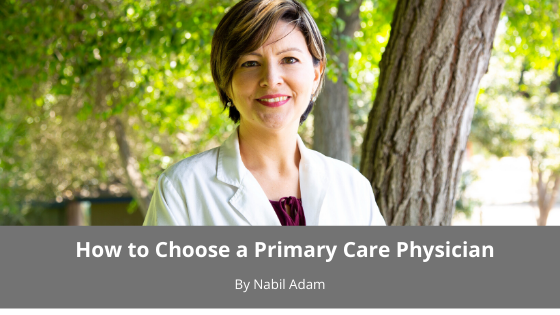Having a doctor you know and can trust is critical to ensuring your overall health and wellbeing. It’s best to have a physician who is familiar with your health history. You’ll want a primary care physician that is reasonably close to where you live. If you move, you may need to change physicians. Selecting a new physician can be challenging, but you can accomplish the task by following these tips.
First, if you are insured, check with your health insurance policy. Some policies require your primary care physician to be “within network.” If that is the case with your insurance, your choices will already be narrowed down. Primary care physicians may be certified under internal medicine or family medicine. Most health insurance companies have a way to search for in-network physicians, so that’s a great place to start.
From this list, you can narrow your choices down further by asking around for recommendations. You might ask co-workers who their primary care provider is. People are generally quick to tell you when they’ve had a negative experience with a physician or physician’s office staff.
Another factor to consider is location. You’ll want someone who is conveniently located. Having a convenient location will make it easier for you to keep regular appointments for physicals and other preventative care. You’ll also want to consider the physician’s office hours. Will you need to take time off work for appointments? Do they have evening or weekend hours? You may also wish to consider which hospital your physician is associated with.
Once logistics have been considered, other factors that should be taken into account are the language and culture of the physician. It can create confusion if you are unable to communicate with your doctor easily. You’ll want a doctor who is culturally sensitive as well to ensure your particular needs are considered.
At this point, you’ve done your research and hopefully, have selected a doctor you feel comfortable scheduling an appointment with. This is a prime opportunity to ask the physician questions in-person. Before you make a decision, consider whether you think the doctor spent enough time with you and gave you a chance to ask all of your questions. Was the doctor able to explain things in a way that made sense to you? You should feel comfortable asking questions and feel that your concerns are appropriately addressed. Go with your gut. If something doesn’t feel right or feels off, then try a different physician.
It’s perfectly fine to decide you don’t want to go back to a physician that didn’t make you feel comfortable. Not every doctor is a good fit, and a doctor that is a good fit for one person may not be the right doctor for another person. The most essential thing in choosing a primary care doctor is that you feel you can talk to them and trust them. Without that, you won’t seek care when you genuinely need it.

